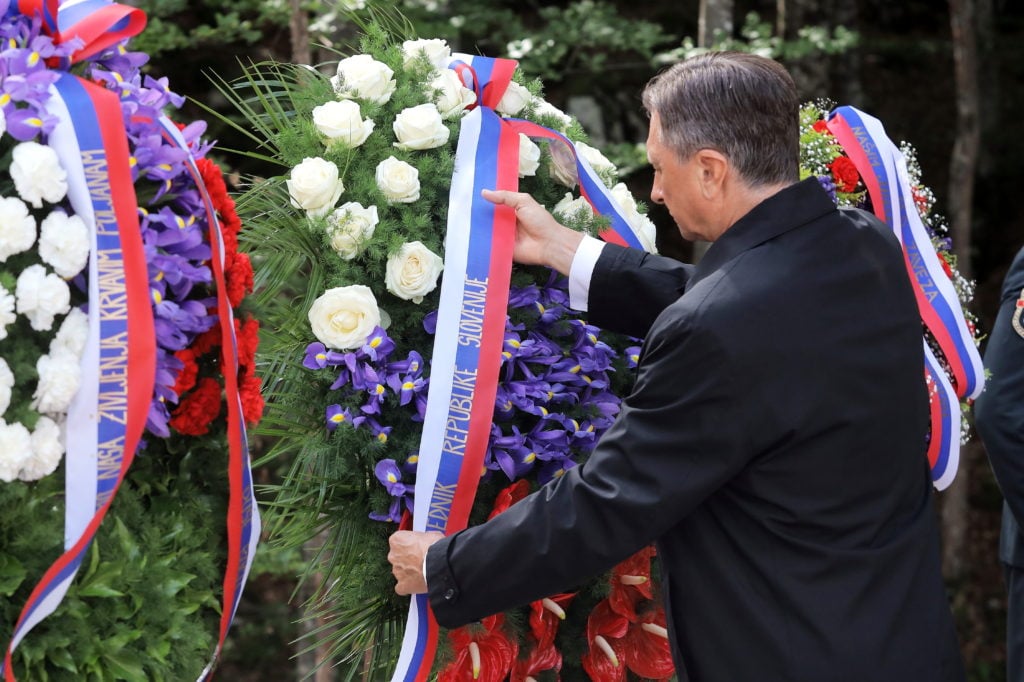“Slovenian historians and researchers are deeply concerned by the government’s recent abolition of the National Day of Remembrance for the Victims of Communist Violence,” a group of Slovenian historians and intellectuals said in a public statement, adding that there is a civilisational need for such a day.
You can read their letter in its entirety below:
“We, the undersigned Slovenian historians and researchers, are outraged and concerned by the government’s abolition of the National Day of Remembrance for the Victims of Communist Violence. In recent decades, and especially in recent years, new research and field discoveries of mass murder and burial sites have further exposed the sad dimensions of communist violence. Communism, alongside the other two totalitarian ideologies, fascism and national socialism, has caused immense suffering for a large part of the population and tens of thousands of victims. New research only adds to the already-known statistics. The expert, historical and victimological basis for discovering the existence of the victims of communism is overwhelming. We hope that more and better basis will emerge over time. We consider free research to be of inestimable value in this regard, and the commemorations are only beneficial to such activities. This is a category of victims that has been and still is partly neglected, and we believe that a day to commemorate them is more than necessary. It is a step on the path of harmony and acknowledgement of the pain of all those who have suffered, which is the only way to national reconciliation.
The efforts to uncover the hitherto suppressed events and people were embedded in the foundation of the creation of the Slovenian state. They were understood as part of the reconciliation efforts, without which we would not have achieved the unity that was crucial during the plebiscite, the establishment of independence and the War of Independence. That is why in July 1990, a reconciliation ceremony was held in Kočevski rog, where the state and the Church at the highest level shook hands, but not the actual parties to the conflict. On that day, the victims of the post-war massacres were symbolically restored to the communion of the nation in Kočevski rog. We note with regret that, over the following three decades, not enough has been done to give the victims a proper place of remembrance in our nation. There are also victims of other violent measures of the communist system, namely prisoners in communist concentration and labour camps, victims of violent expropriation of property, victims of political and rigged trials, victims of forced expulsions from their places of residence, and victims of shootings at the national border. The commemoration of the National Day of Remembrance for the Victims of Communist Violence is a logical and sensible continuation of the reconciliation initiatives, and we see it as a step towards mutual respect. Under the Redressing of Injustices Act, the Republic of Slovenia has already recognised the status of victims of communist violence for more than 30,000 persons who were unlawfully deprived of their liberty after the war, and under the Denationalisation Act, the Republic of Slovenia has returned property that was unlawfully nationalised after the war to nearly 40,000 persons. By abolishing the National Day of Remembrance for the Victims of Communist Violence, the government has at least symbolically denied the existence of these victims, reflecting a serious lack of respect for basic norms of civilisation.
For all these reasons, we call on and ask the government of the Republic of Slovenia, in the spirit of reconciliation and mutual cooperation, without excluding anyone, to return the abolished Day of Remembrance to the public calendar, thereby demonstrating statesmanlike wisdom. Historians and researchers, in particular specialists in recent Slovenian history, are very willing to cooperate with further explanations and justifications.
It is also worth noting that the 17th of May is well chosen as the day of commemoration, because on that day in 1942, the partisans murdered more than 50 civilians, mostly Roma children and women, in Iška. This was the single largest massacre of the Slovenian population since the beginning of the war. The fact that the majority of those killed were Roma people, the most deprivileged category of the population, further calls for the responsibility of the Republic of Slovenia to remember all its victims, especially those who have been denied for decades. In doing so, no one loses anything, but as a community, we only gain, including in terms of respect and equality for all of our community’s members.”
Professor Dr Mitja Ferenc
Dr Tamara Griesser Pečar
Dr Milko Mikola
Alenka Puhar
Professor Dr Matjaž Ambrožič
Professor Dr Metod Benedik
Dr Metod Berlec
Dr Feliks J. Bister
Dr Pavlina Bobič
Martin Brecelj, MSc
Professor Dr Ivan Čuk
Dr Jože Dežman
Professor Dr Stane Granda
Professor Dr Igor Grdina
Professor Dr Boris Golec
Dr Damjan Hančič
Dr Tomaž Ivešič
Pavel Jamnik
Erika Jazbar
Ivo Jevnikar
Professor Dr Janez Juhant
Dr Helena Jaklitsch
Dr Monika Kokalj Kočevar
Professor Dr Jernej Letnar Černič
Professor Dr Aleš Maver
Dr Andrej Mihevc
Dr Boris Mlakar
Dr Jože Možina
Stane Okoliš, MSc
Assistant Professor Dr Matija Ogrin
Igor Omerza, MSc
Assistant Professor Dr Željko Oset
Dr Verena Perko
Dr Renato Podbersič
Dr Vincenc Rajšp
Professor Dr Vasko Simoniti
Dr Lilijana Žnidaršič Golec

